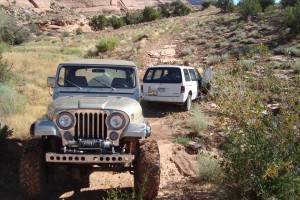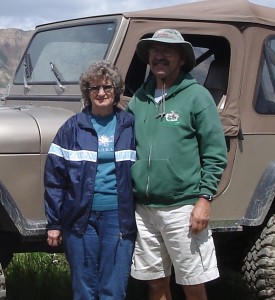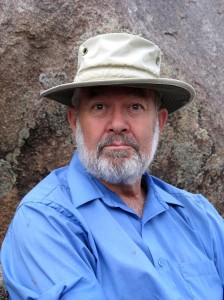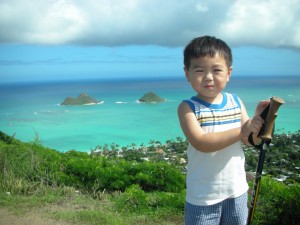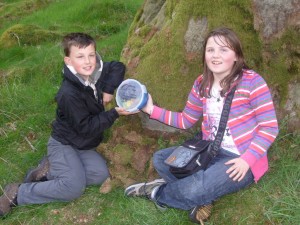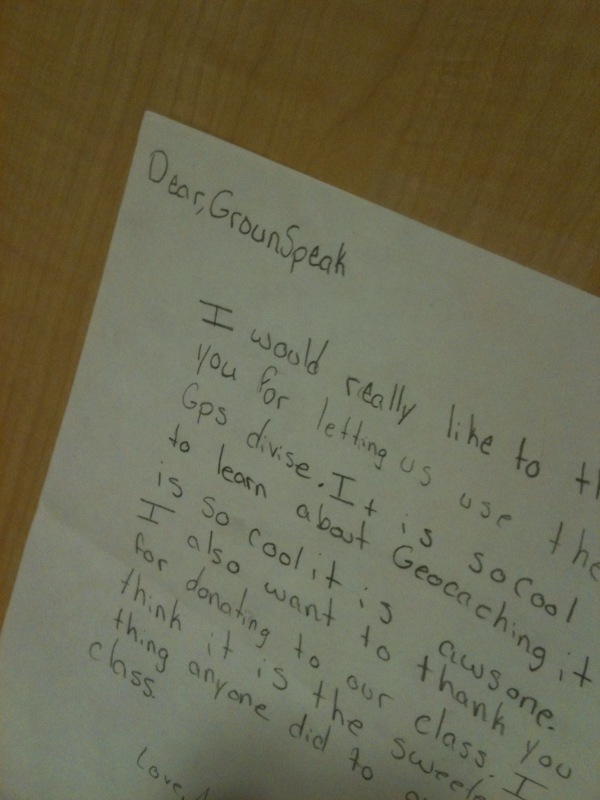
The kitchen at Groundspeak is stocked with pretty much the standard condiments and food you’d find in any kitchen. The fridge is home to ketchup and mustard and some random unlabeled containers. The corner coffeemaker generates a little morning rush hour traffic as Lackeys clamor for a cup of morning energy.
But this week, Lackeys walked into the kitchen recently and walked out with more than coffee. It’s what appeared on the cabinets that gave those leaving, coffee mug in hand, with a feeling of affirmation.
Letters taped to the cabinets read, “Once again your donation is making school cool” and “I also want to thank you for donating to our class. I think it is the sweetest thing anyone did to our class.”
Groundspeak donates money for GPS devices to a cause called DonorsChoose.org. The donations put GPS devices in the hands of students.
The Lost & Found video crew visited a Texas, USA class that received a donation of GPS devices. You can watch how a teacher intertwined a lesson plan about science with the outdoor adventure of geocaching.
The students went geocaching. They solved problems in small groups, learned direction and distance, and engaged with technology.
More than 30 letters from different classrooms have arrived at Groundspeak over the past year and we are committed to putting more GPS unites in the hands of students.
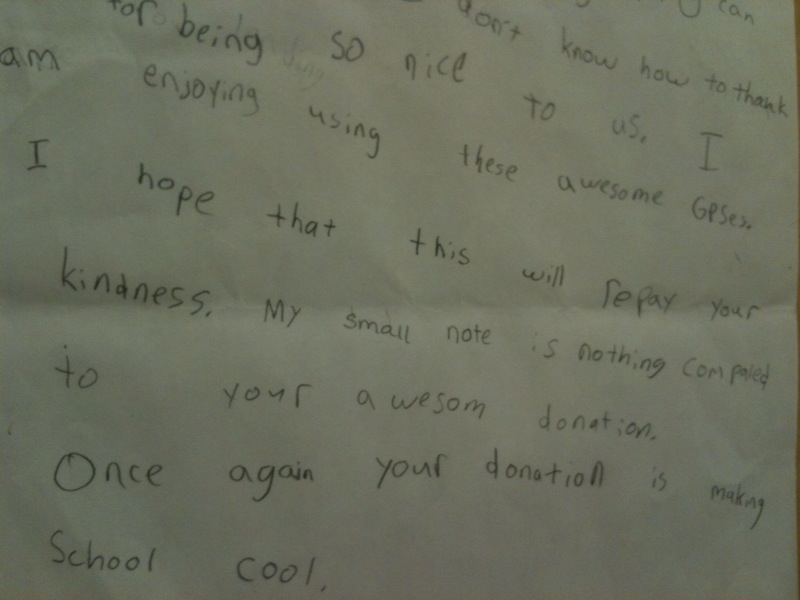
A half-dozen thank you letters from students are on display in the kitchen now. One line from a grade school student reads, “Thank you thank you thank you (1,000,000,000 times) much for donating to our class.” How the letters are signed may say more. Some of the chunky grade school writing spells out “thank you” or “your friend” or even “love.”
But students aren’t just thanking Lackeys. They’re not just affirming that geocaching can be a powerful force for learning. They’re thanking geocachers for making this donation possible. You fuel Groundspeak. Those letters of thanks (a 1,000,000,000 times much) are really written to you as well.
